
Have you noticed a drop in conversions despite having a well-designed landing page? The culprit might not be your design but your hosting. Slow load times and unreliable performance can frustrate visitors, driving them away before they even get a chance to see your offer. That’s where landing page hosting services come in to save the day — and your campaign!
Think of your hosting as the engine powering your landing page. If it’s not fast, secure, and reliable, you could be losing potential leads. In this guide, we’ll explore how the right web hosting can ensure your landing page performs at its best and how cloud hosting takes things to the next level.
This article delves into the critical impact of web hosting on landing page performance and conversion rates. It explores the key factors that contribute to slow landing page speeds, discusses the detrimental effects of slow loading times, server downtime, and security vulnerabilities on visitor engagement and conversions. It highlights the benefits of cloud hosting, an emphasizes the importance of CDNs and SSL certificates in improving page speed and building visitor trust. Finally, the blog provides essential guidance on choosing a web hosting provider for proactive site monitoring.
Table of Contents
- Why Web Hosting Matters for Landing Pages
- Types of Web Hosting for Landing Pages
- CDN and SSL: The Key to Landing Page Optimization
- Benefits of Using Cloud Hosting for Landing Pages
- Cloud Hosting: A Foundation for Scalability and Reliability
- Successful Hosting Landing Pages as Solutions to Slowing Down Conversions
- Flowrec Solutions: Meeting Your Hosting and Landing Page Needs
- Conclusion: Elevate Your Landing Pages with the Right Hosting
Why Web Hosting Matters for Landing Pages
Your web hosting isn’t just where your landing page lives; it’s what determines how well it performs. A strong hosting foundation ensures that visitors have a fast, secure, and smooth experience. Here’s why hosting matters for creating impactful landing pages:
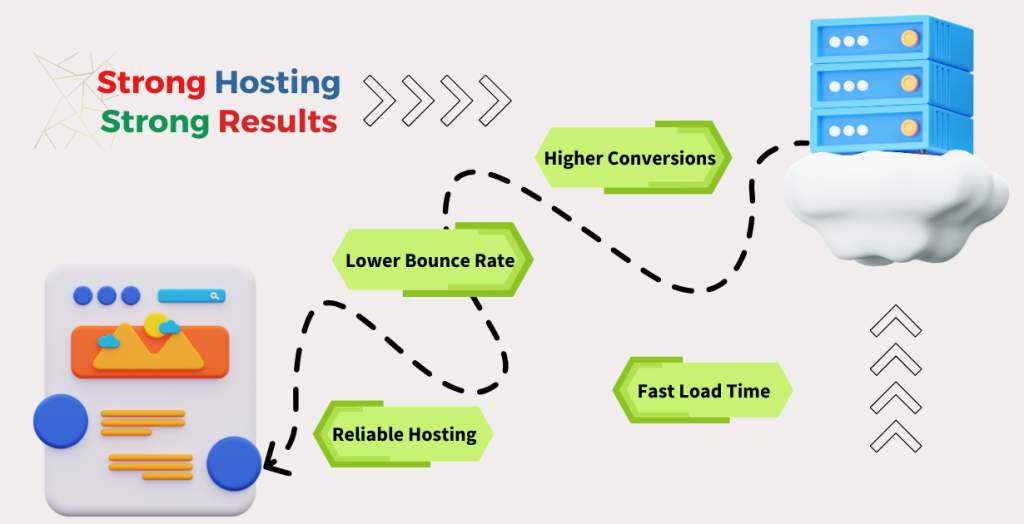
Your web hosting platform is the foundation of your landing page’s performance. Here’s why it’s critical:
- Speed and Load Times: A fast-loading landing page is crucial to keep visitors engaged. Studies show that pages taking longer than three seconds to load risk losing up to 40% of users.
- Scalability: During high-traffic events like sales or promotions, your hosting should handle sudden traffic spikes without slowing down or crashing.
- Reliability: Downtime can damage your brand’s reputation and lead to missed opportunities. A reliable hosting service keeps your page live and accessible around the clock.
- Security: Secure hosting ensures user data is protected, helping to build trust and credibility with your audience. Look for hosting with SSL certificates and strong firewall protections.
Types of Web Hosting for Landing Pages
Choosing the right type of web hosting can feel overwhelming, but it doesn’t have to be. Think of your hosting as the foundation of your landing page’s success — the stronger it is, the better your page performs. Each hosting type comes with its own pros and cons, so understanding your needs is key. Here’s a breakdown to help you decide:
1. Shared Hosting
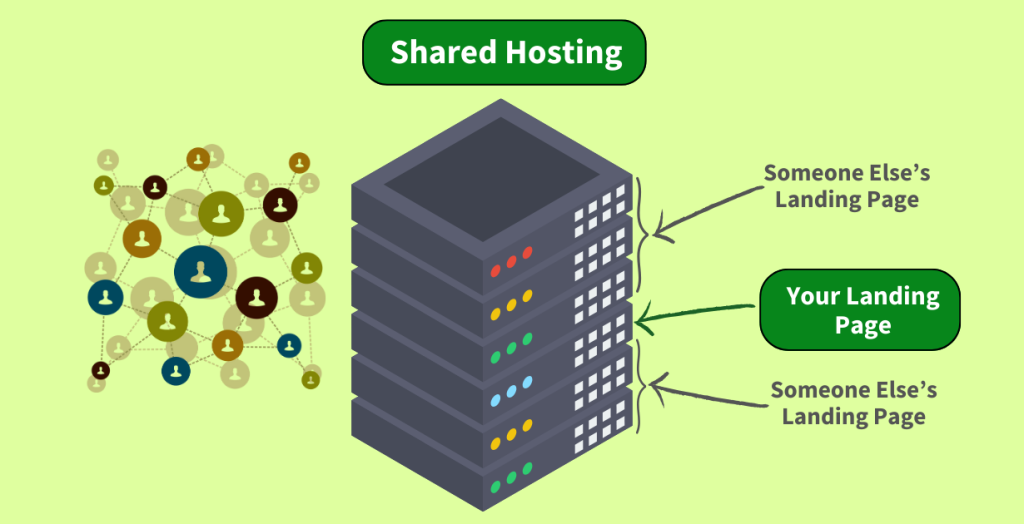
- What It Is: Shared hosting means your website shares server space with others, making it one of the most affordable options.
- When to Use It: If you’re just starting out and expect low-to-moderate traffic, shared hosting works well.
- Watch Out For: Slower speeds and reduced performance during peak traffic times because resources are shared.
2. VPS Hosting
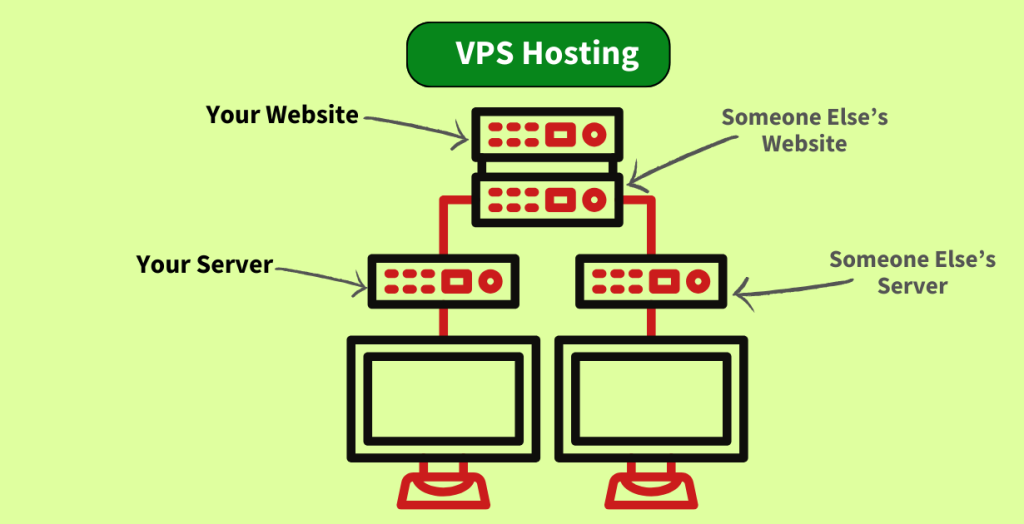
- What It Is: A Virtual Private Server (VPS) offers a middle ground, giving you a dedicated portion of a server’s resources.
- When to Use It: Ideal for growing businesses that need more control and better performance than shared hosting can provide.
- Benefits: You get faster load times, more reliability, and greater customization options without the cost of a dedicated server.
3. Dedicated Hosting
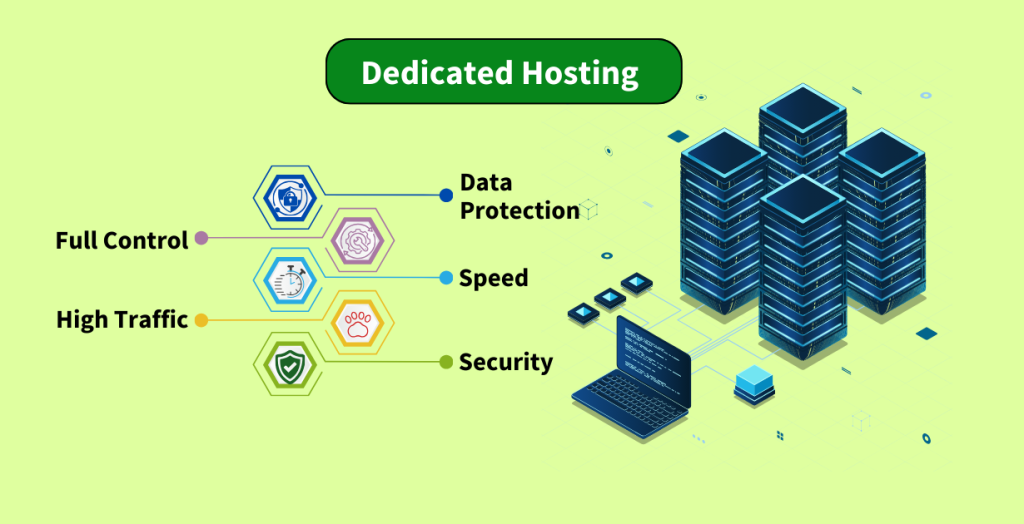
- What It Is: This is like having a server all to yourself — no sharing, full control, and maximum performance.
- When to Use It: Perfect for high-traffic websites or businesses running major campaigns where downtime isn’t an option.
- Considerations: It’s costly and often more than what small-to-medium-sized businesses need.
4. Cloud Hosting
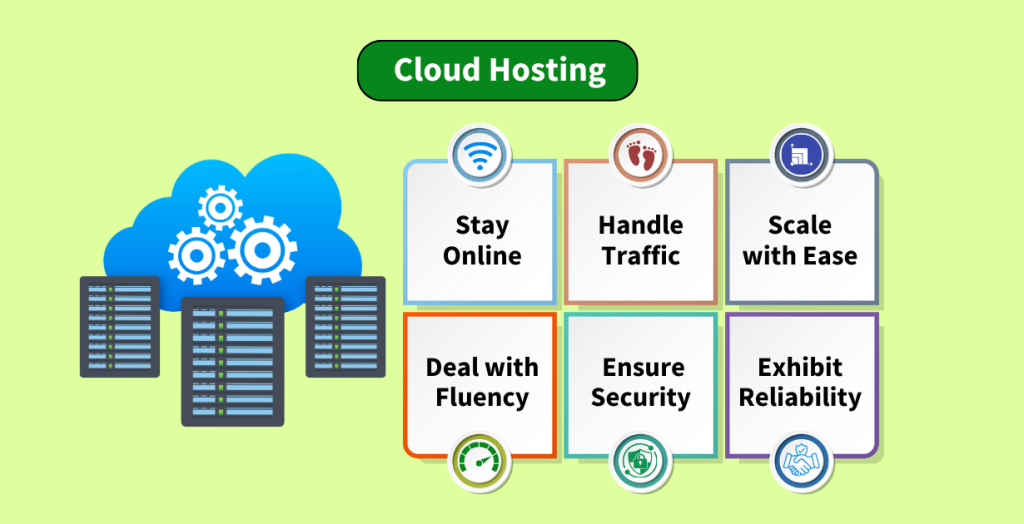
- What It Is: Cloud hosting spreads your website’s data across multiple servers, providing unmatched scalability and reliability.
- When to Use It: Best for landing pages that need to handle unpredictable or high traffic, like during flash sales or product launches.
- Why It Stands Out: Cloud hosting ensures minimal downtime, faster loading speeds, and adaptability as your needs grow.
For advice on selecting hosting solutions that complement your design, check out great landing page layouts with webforms.
CDN and SSL: The Key to Landing Page Optimization
If you want your landing page to stand out and succeed, there are two things you can’t compromise on: speed and trust. People expect websites to load quickly and handle their sensitive information securely. The good news? You can easily tackle both with a Content Delivery Network (CDN) and an SSL certificate. Here’s how these tools work — and why they matter.
Speed Up Your Landing Page with a CDN
A CDN is like a network of pit stops for your website’s content. It spreads your files (like images, CSS, and JavaScript) across servers located all around the world. When someone visits your site, the CDN serves them the files from the server closest to them.
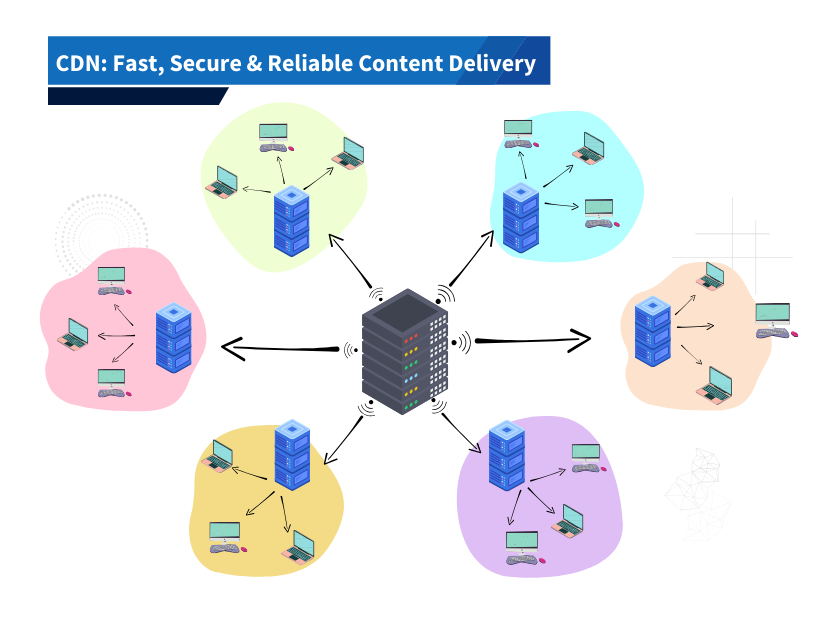
Here’s why this is a game-changer:
- Faster Loading Times: By shortening the distance data needs to travel, visitors see your page load much quicker.
- Handles More Visitors: A CDN takes the load off your main server, so your site doesn’t crash or slow down when traffic spikes.
- Better User Experience: People are more likely to stick around when your page loads quickly. Research shows even a one-second delay can cause visitors to leave.
Build Trust with an SSL Certificate
An SSL certificate is what makes your website secure. It encrypts the data exchanged between your site and its visitors, keeping sensitive info safe from hackers.
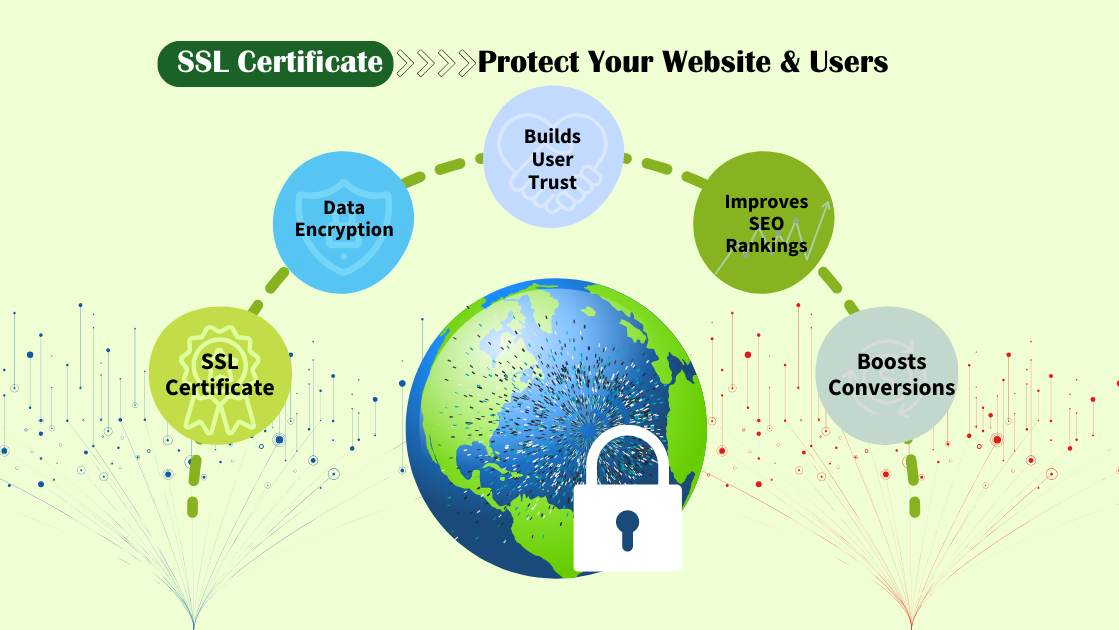
Here’s why it’s essential:
- Secure Data: SSL ensures that personal info like passwords or payment details stays private.
- Signals Trust: Visitors can see a padlock in the browser bar and “HTTPS” in your URL, which tells them your site is safe.
- Better SEO: Google gives preference to secure websites, so an SSL can help boost your search rankings.
- More Conversions: When people trust your site, they’re more likely to take action — whether it’s signing up, sharing info, or making a purchase.
Why Both Are Better Together
A fast-loading page attracts attention, and a secure page builds confidence. When you combine a CDN with an SSL certificate, you’re covering both bases. Visitors enjoy a smooth, speedy experience and feel safe engaging with your site.
In the end, these two tools help create a landing page that not only looks good but also performs well. You’ll see happier visitors, better search rankings, and higher conversions. Plus, you’ll show your audience that you care about their experience and security — something that can help you build lasting trust and loyalty.
Benefits of Using Cloud Hosting for Landing Pages
Cloud hosting isn’t just another option for your landing page — it’s the solution that ensures your page works flawlessly, even during your busiest campaigns. Here’s why cloud hosting stands out as the ideal choice for modern businesses:
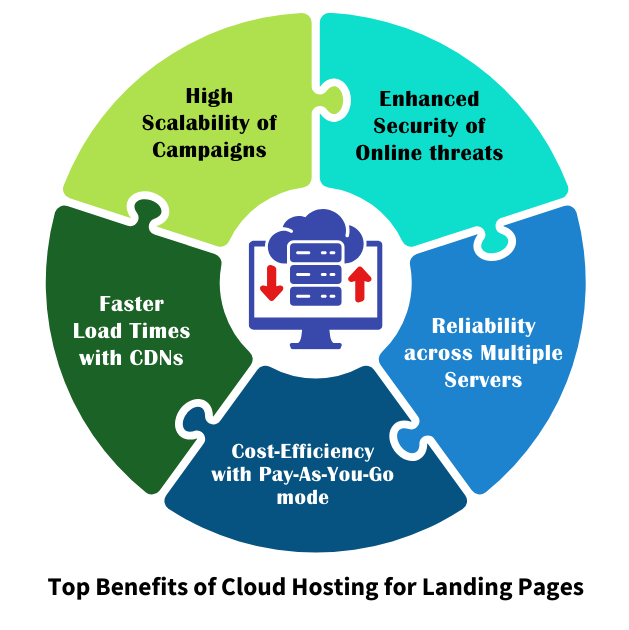
1. Faster Load Times
In today’s fast-paced digital world, visitors won’t wait for slow-loading pages. Cloud hosting uses Content Delivery Networks (CDNs) to serve your landing page from servers closest to the user’s location.
- Why It Matters: Faster load times reduce bounce rates and keep users engaged.
- Pro Tip: Use optimized images and lightweight themes to further enhance speed.
2. High Scalability
Campaigns can lead to unpredictable traffic. Cloud hosting automatically scales resources to handle these surges without slowing down or crashing your site.
- Why It Matters: Whether it’s a viral campaign or a seasonal sale, your page stays live and responsive.
- Example: A product launch receiving thousands of hits won’t overwhelm your server.
3. Enhanced Security
Online threats like hacking and data breaches are growing, but cloud hosting providers offer robust security measures to keep your site and user data safe.
- Features to Look For: DDoS protection, SSL certificates, and automated backups.
- Why It Matters: Building trust with users is essential, and a secure experience ensures they feel confident sharing information.
4. Reliability
Downtime is a killer for landing pages, especially during high-stakes campaigns. Cloud hosting distributes your data across multiple servers, ensuring minimal downtime.
- Why It Matters: If one server experiences an issue, another instantly takes over, keeping your page accessible.
- Pro Tip: Choose a hosting provider with a proven track record of uptime reliability.
5. Cost-Efficiency
Cloud hosting often operates on a pay-as-you-go model, so you only pay for the resources you actually use.
- Why It Matters: It’s a budget-friendly option for businesses that experience fluctuating traffic.
- Example: Scale down resources during off-peak times to save money.
By opting for cloud hosting, you’re setting your landing page up for success — fast, secure, and ready to handle anything your campaigns throw its way.
Cloud Hosting: A Foundation for Scalability and Reliability
Cloud hosting has emerged as a transformative solution for businesses seeking to optimize landing page performance. By leveraging the power of cloud infrastructure, businesses can unlock a range of benefits that directly impact their ability to attract, engage, and convert visitors.
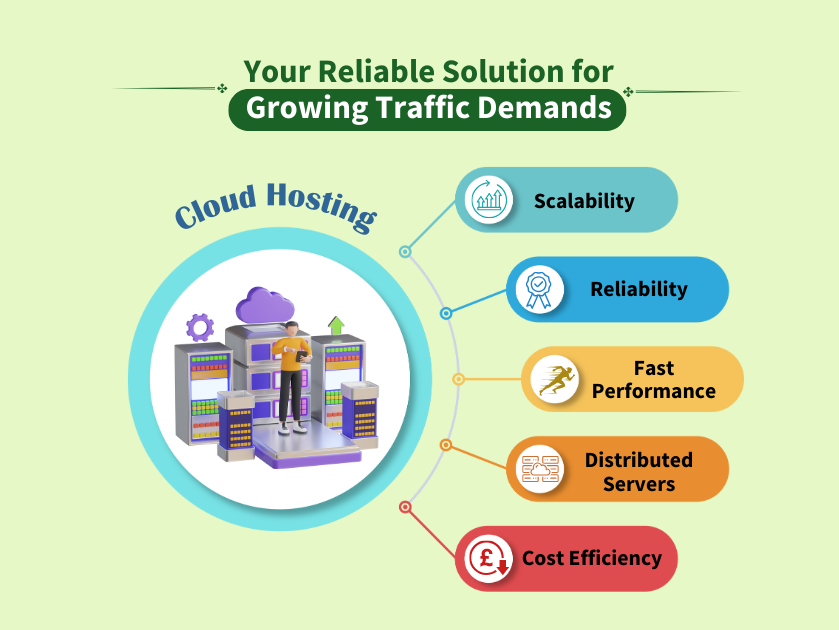
- Easy Scalability: Cloud hosting makes it simple to scale resources up or down based on your needs. If your website sees a sudden spike in traffic during events like sales or promotions, you can increase resources instantly to handle the load. This ensures your site remains fast and responsive for all visitors. Once the traffic returns to normal, you can scale back down, saving money and maintaining performance. This flexibility eliminates the risk of slowdowns or crashes during critical moments.
- High Reliability: Unlike traditional hosting, which relies on a single server, cloud hosting spreads your website’s data and applications across multiple servers. If one server goes down, another instantly takes over, ensuring minimal downtime. This redundancy guarantees your site remains accessible, providing a smooth experience for visitors and reducing the risk of lost revenue due to outages. For businesses, this reliability is crucial for maintaining customer trust and satisfaction.
- Better Performance: Cloud providers use advanced technologies like caching, load balancing, and content delivery networks (CDNs) to deliver faster page loading times. These tools distribute traffic efficiently and ensure visitors can access your site quickly, no matter where they are in the world. A faster website not only improves the user experience but also increases engagement and boosts conversion rates, making every visitor interaction more valuable.
- Cost-Effective: With cloud hosting’s pay-as-you-go model, you only pay for the resources you use. This is especially beneficial for businesses with seasonal or fluctuating traffic. You can avoid the high costs of maintaining unused resources, which is common in traditional hosting. This cost flexibility allows businesses to optimize their hosting expenses while ensuring their site always has enough capacity when it’s needed most.
- Improved Security: Cloud providers invest heavily in state-of-the-art security measures, including firewalls, encryption, and continuous system updates. Many also employ dedicated security teams to monitor and respond to threats in real-time. This proactive approach enhances your website’s security and helps protect sensitive visitor data. By using a reputable cloud provider, you gain access to enterprise-grade security without the need to build it yourself.
- Access to Innovation: Cloud platforms regularly update and introduce new technologies like artificial intelligence (AI), machine learning (ML), and data analytics tools. These services allow you to gather insights into visitor behavior, personalize user experiences, and optimize your marketing efforts. By leveraging these tools, you can stay ahead of the competition, deliver more engaging content, and drive better results from your online presence.
By leveraging the scalability, reliability, performance, cost-effectiveness, security, and innovation of cloud platforms, businesses can create a robust and resilient online presence that attracts, engages, and converts visitors. Read the best landing page layouts with webforms.
Successful Hosting Landing Pages as Solutions to Slowing Down Conversions
Successful web hosting landing pages showcase how thoughtful design and clear messaging can convert visitors into customers. These examples highlight different strategies that deliver results.
1. Bluehost Hosting Plans Page
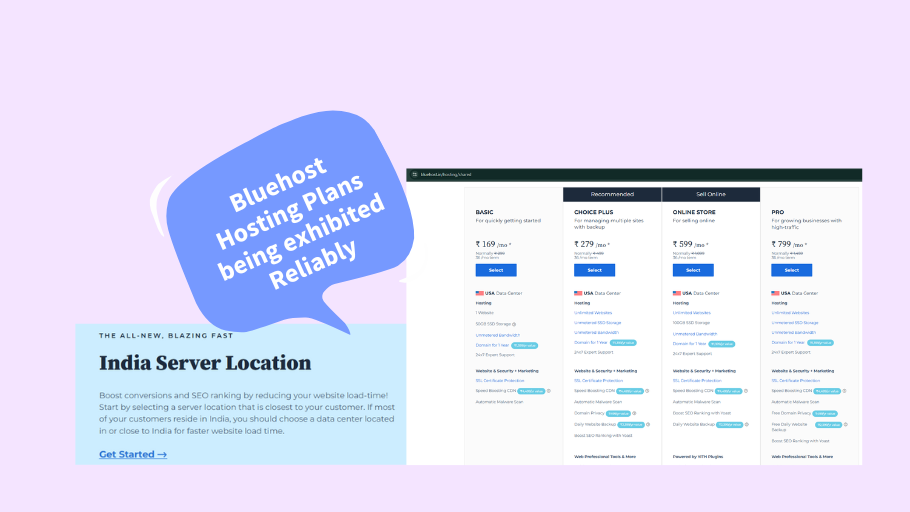
What Works: Bluehost’s landing page simplifies decision-making with a clean layout and easy-to-read plan comparisons. The CTAs, like “Get Started Now,” are prominently placed, making it easy for visitors to take action.
Key Feature: Interactive pricing tables allow users to compare features and costs quickly, helping them choose the right plan for their needs.
2. AWS Cloud Hosting Landing Page
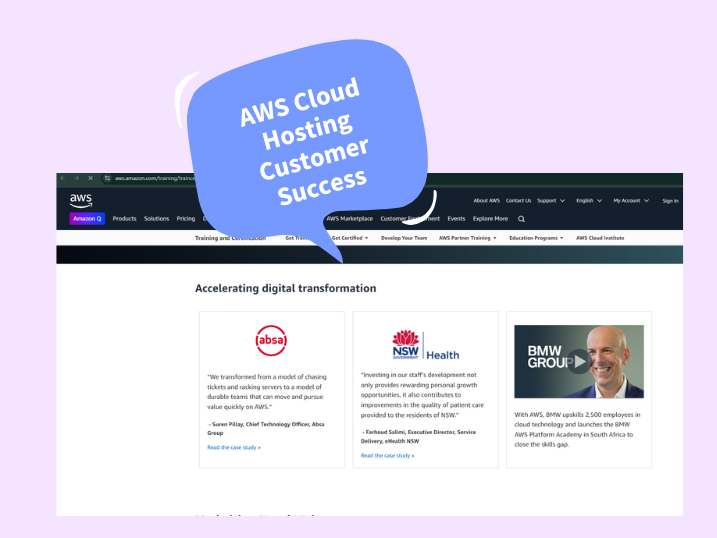
What Works: The AWS landing page emphasizes scalability and flexibility, catering to businesses of all sizes. Customer success stories add credibility and inspire trust.
Key Feature: Dynamic content sections highlight tailored solutions for industries like e-commerce, healthcare, and education.
3. Google Cloud Free Trial Page
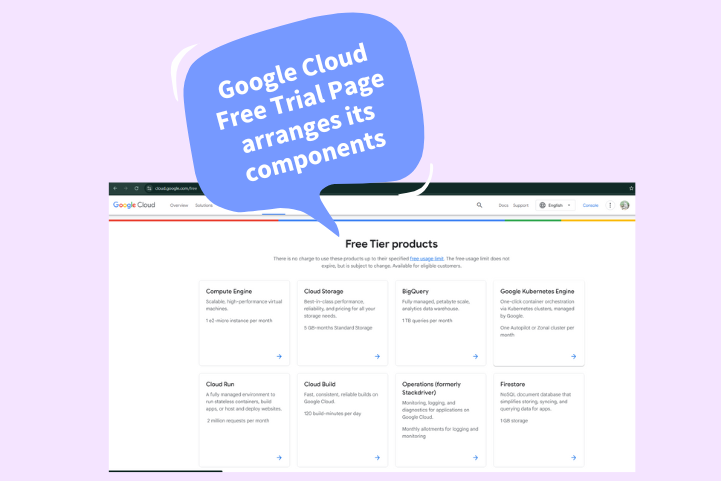
What Works: Google Cloud’s landing page offers a clear and compelling value proposition with its $300 free credit for new users. The minimalistic design ensures users focus on the offer.
Key Feature: A simple form at the top of the page reduces friction and encourages quick sign-ups.
Flowrec Solutions: Meeting Your Hosting and Landing Page Needs
At Flowrec Solutions, we specialize in creating high-performance web hosting landing pages that drive conversions. Whether you need to design a new landing page or optimize an existing one, our team ensures your page performs flawlessly under any traffic load.
Our expertise in landing page hosting services and cloud-based solutions guarantees faster load times, enhanced security, and seamless user experiences. Let us help you bring your vision to life. Contact Flowrec Solutions today to create landing pages that deliver results and reflect your brand’s excellence.
Conclusion: Elevate Your Landing Pages with the Right Hosting
Your landing page’s success hinges on the quality of your hosting platform. A reliable and well-optimized hosting solution doesn’t just keep your page running — it elevates your brand’s credibility, ensures seamless user experiences, and drives more conversions. By selecting the right hosting and incorporating the strategies shared in this guide, you can create web hosting landing pages that truly stand out and deliver measurable results to your campaigns.
To explore more strategies for building and optimizing landing pages, check out these related blogs:
Start building performance-driven landing pages today and watch your campaigns reach new heights.
###

